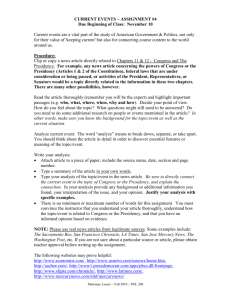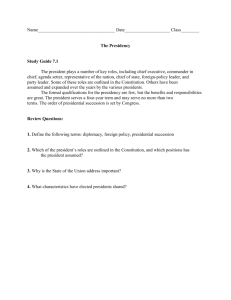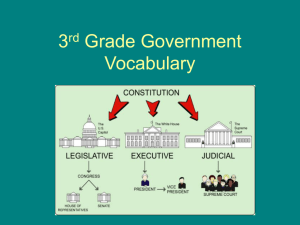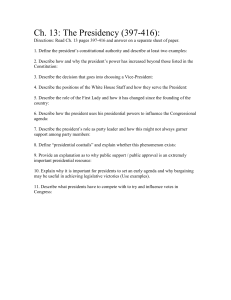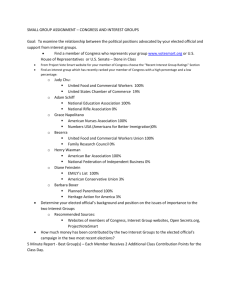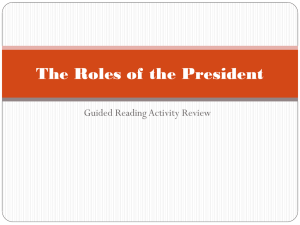The Presidency: An Overview Overview of the Presidency
advertisement
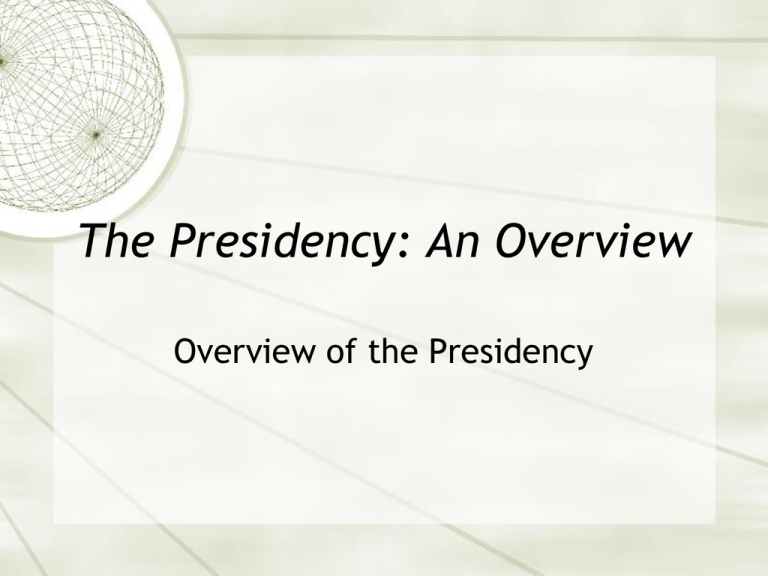
The Presidency: An Overview Overview of the Presidency Qualifications Constitutional Natural Born Citizen 35 Years of Age Resident for at least 14 yrs. “Unwritten” Experience in Gov’t No criminal past Terms of Office Four Years Maximum of 2 elected terms Washington’s precedent sealed by 22nd Amendment 22nd Amend. Passed due to Republican concern over future FDR’s Possible to serve 10 years in office if V.P. becomes President just after midpoint of President’s term (If V.P. serve more than half of President’t term, he can be elected to the presidency only once) LBJ succeeded JFK in 1963, and was therefore able to be elected twice Gerald Ford succeeded Nixon in 1974 and was therefore eligible to be elected only once Compensation Set by Congress (cannot be raised during President’s term; fear of undue influence) Salary raised from $200,000 to $400,000 in 2001 (first raise since 1969) Numerous other “perks” Opportunity to make serious money after leaving office Speaking fees (Clinton earns $300,000/speech; Reagan $3 mil. For three speeches to Japanese firm) Writing memoirs (Clinton received $12 mil. From publisher) Serving on corporate boards of directors (e.g., Ford) Succession If office of presidency is vacant due to death, resignation, or impeachment and removal, V.P. becomes President (Line of succession: V.P.SpeakerSenate Pres. Pro Tempore Sec. Of StateSec. Of Treasury Sec. Of defenseother cabinet secretaries (Pres. Succession Act of 1947) If president is disabled, the 25th Amendment applied Pres. Informs Congress, V.P. acting presidency If pres. Is unable to inform (coma) V.P. receives Congressional approval to become acting president In either case, President regains power by informing Congress of intent to return. If there is dispute, Congress decides who has power.
